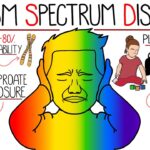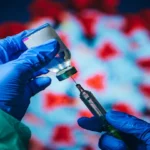For years, patients with diverticulitis, a common digestive condition, have often been advised to avoid certain foods like nuts, seeds, and popcorn, based on the belief that these small particles could worsen the condition.

However, a significant new study has challenged this long-held diverticulitis diet restriction, finding that consuming these foods does not actually increase the risk of developing the painful inflammation. Published in the prestigious journal Annals of Internal Medicine, the research provides strong evidence to refute this widespread dietary advice.
Understanding Diverticular Disease
To understand diverticulitis, it’s helpful first to know about diverticulosis. As people age, it is common for small pouches, called diverticula, to form and bulge outward in weak spots along the walls of the colon.
Having these pouches is known as diverticulosis. Most people with diverticulosis experience no symptoms. However, diverticulitis occurs when one or more of these pouches become infected or inflamed. This can lead to a range of uncomfortable and potentially severe symptoms, including significant abdominal pain (often in the lower left side), fever, nausea, vomiting, cramping, and changes in bowel habits such as constipation or diarrhea.
The Common Misconception
The traditional dietary advice for people with diverticular disease often included avoiding foods perceived as having small particles, such as nuts, seeds, corn, and popcorn. The assumption was that these grainy or fibrous bits could get trapped in the small diverticula pouches, causing irritation, blockages, or inflammation leading to diverticulitis. Patients with the condition have frequently attempted to control their diet with a particular focus on strictly excluding these foods based on this logical, but as the new study suggests, incorrect premise.
Study Methodology and Findings
To rigorously test the validity of this common diverticulitis diet restriction, the research team, led by senior researcher Dr. Anne Peery, a gastroenterologist at the University of North Carolina at Chapel Hill, analyzed extensive data from a large government survey. The study included nearly 30,000 U.S. women aged 35 to 74. These participants filled out detailed questionnaires about their diet and health every two to three years over a prolonged period, spanning from 2003 to 2022.
The analysis of this comprehensive dataset yielded clear findings regarding the consumption of particulate foods. Researchers reported that the data found no link between the women’s dietary intake of seeds, nuts, or popcorn and their risk for developing diverticulitis. Importantly, this finding also included consumption of fresh fruit containing seeds, such as strawberries or raspberries.
This direct result from a large, long-term study significantly refutes the widely held belief that these foods should be avoided for prevention. As Dr. Peery’s team wrote, “Our findings refute the widely held belief that dietary intake of particulate matter [like nuts or seeds] should be avoided to prevent diverticulitis.”
The Power of Healthy Eating Patterns
While the study found no evidence to support avoiding nuts, seeds, or popcorn, it did identify a strong association between overall diet quality and a reduced risk for incident diverticulitis in women. Researchers assessed how closely the women’s eating patterns aligned with four common and well-established healthy diets. They discovered that women who adhered more closely to these dietary patterns had a significantly decreased risk of developing the condition:
Following a pattern resembling the Dietary Approaches to Stop Hypertension (DASH) diet was associated with a 23% decreased risk.
Alignment with the Healthy Eating Index resulted in a 22% lower risk.
Adhering to the Alternative Healthy Eating Index showed a 19% reduced risk.
Following the Alternative Mediterranean Diet pattern was linked to a 9% decreased risk.
These findings suggest that the overall quality and pattern of one’s diet, rather than the avoidance of specific particle-containing foods, play a more crucial role in diverticulitis prevention. These healthy diets typically emphasize high intake of fruits, vegetables, whole grains, and lean proteins, while being lower in red meat, processed foods, and unhealthy fats.
Possible Biological Links
The researchers also commented on the potential biological mechanisms through which diet quality might influence the risk of diverticulitis. They suggested that a healthy diet could reduce risk by helping to control systemic inflammation in the body, or by lowering the risk of developing other chronic conditions that have been linked to diverticulitis, such as type 2 diabetes.
Furthermore, they noted recent evidence suggesting that the composition of the gut microbiome (the community of bacteria and other microbes in the digestive tract) and its corresponding metabolic profile are altered in individuals with diverticulitis. This adds another potential pathway through which diet, particularly a fiber-rich diet that supports a healthy microbiome, could be related to diverticulitis risk.
Other Factors Associated with Diverticulitis Risk
In addition to diet, the study also observed certain demographic and lifestyle factors that were associated with a higher likelihood of developing diverticulitis within the study population of women. Women who were diagnosed with the condition during the study period tended to be older, were current or former smokers, reported heavy alcohol use, and were overweight. These observations reinforce the understanding that diverticulitis risk is influenced by multiple factors, including age and lifestyle choices, not solely by diet.
Implications for Dietary Guidance
The findings from this large, long-term study have significant implications for dietary advice provided to individuals with diverticular disease or those seeking to reduce their risk. The focus of the diverticulitis diet should shift away from unnecessary and restrictive advice to avoid nuts, seeds, and popcorn. Instead, the emphasis should be placed on promoting overall healthy eating patterns.
Adopting a diet rich in fiber, fruits, vegetables, and whole grains, consistent with patterns like the DASH or Mediterranean diet, appears to be a more effective strategy for prevention and potentially managing the condition.
Further Research
While this study provides compelling evidence, it’s important to note that the analysis was based on data from women. Further research would be beneficial to confirm these findings in men and explore whether the associations between specific dietary patterns and diverticulitis risk hold true across different populations. Researchers may also continue to investigate the precise mechanisms, including the role of the gut microbiome, that explain the link between diet quality and diverticulitis.
New Guidance for Diverticulitis Diet
A recent study published in Annals of Internal Medicine has scientifically challenged the long-standing diverticulitis diet recommendation to avoid nuts, seeds, and popcorn. Based on data from nearly 30,000 women over two decades, the study found no evidence that these foods increase diverticulitis risk. Instead, the research highlights the potential of overall healthy eating patterns, such as the DASH diet, to significantly reduce risk.
This suggests that dietary guidance for diverticulitis prevention should focus on promoting high-quality diets rich in fiber and plant-based foods, rather than imposing restrictive and unnecessary limitations on foods like nuts, seeds, and popcorn, allowing patients more freedom in their eating while potentially offering better protective benefits. As always, individuals should consult with their healthcare provider or a registered dietitian before making significant changes to their diet.







